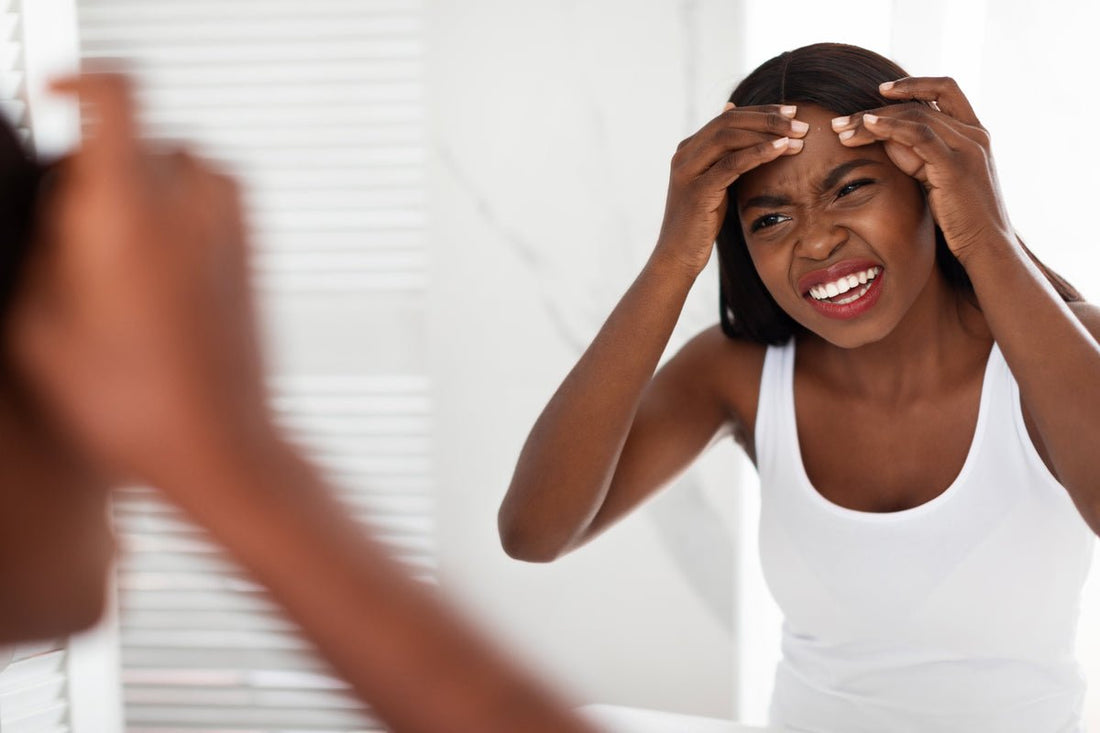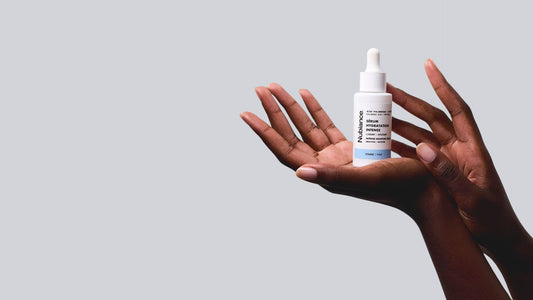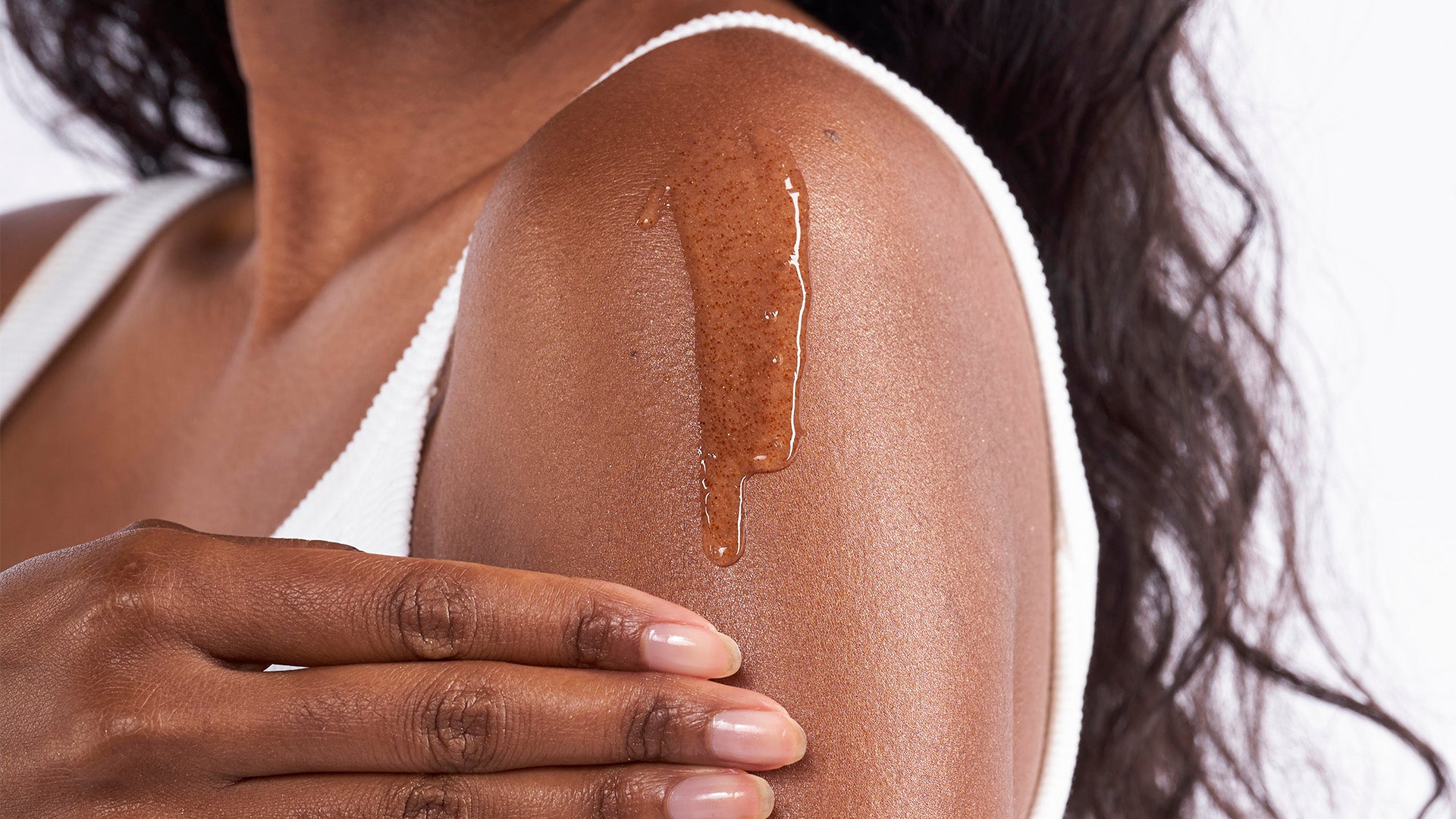
Top 5 mistakes to avoid in case of acne on black skin
Partager
Top 5 mistakes to avoid in case of acne on black skin
Smooth skin and a luminous complexion, do you dream of it? Adopt the right gestures! Very often, we tend to rely on false ideas and we end up severely degrading our acne. To avoid reaching this stage, we share with you 5 mistakes to avoid in case of acne on black skin.
Acne on black skin : errors to avoid
1. Cleanse your skin too much
Good hygiene is the first step towards healthy skin. However, forget the idea that the more you cleanse your skin, the cleaner it becomes. The reality is that the more you cleanse your skin, the more sensitive, irritable and fragile you make it. The surface of the skin is protected by a hydrolipidic film. The latter prevents pathogens from entering and eliminates toxins that the body evacuates to the outside. Excessive cleaning weakens this protective film and causes the appearance of imperfections on the skin. To avoid stripping your skin drastically, be reasonable with cleansing, exfoliation, cleansing cosmetics, and the use of skin-grating tools. Cleansers for acne-prone skin are harsh with frequent use. In the morning, the skin is rarely dirty, a spray of thermal water is enough. At night, use a gentle cleanser to flush out impurities.
2. Not removing makeup
Before going to bed, never forget to remove your makeup and cleanse your skin. Cosmetics, sebum, perspiration and impurities don't mix. If not cleaned properly, they get incorporated and form a rash mixture that promotes irritation of black skin and aggravates acne. For complete make-up removal, use micellar water or make-up remover milk and gently massage your face with your fingertips. Thereafter, wipe your face with cotton or a small cloth. Once you have removed your make-up, cleanse your skin with a little soap or moisturize it with a lotion. If you're not a fan of cleansing milk, opt for vegetable oil [15] (jojoba, coconut, nigella, etc.) and continue with the same steps. In addition to removing makeup, vegetable oil revitalizes your skin. It is compatible with acne-prone black skin.
3. Neglecting black skin hydration
Although black skin is less susceptible to photoaging, it needs constant nourishment and hydration. The mistake is to rely on this fact and knowingly neglect its water supply. To tone the skin, preserve its radiance and protect it from imperfections (redness, acne, irritation), meet its water needs. Well hydrated skin retains its youthful glow and ages less quickly. Precisely, you covet a smooth and luminous black skin, right? So, do not neglect this point. If you have oily and acne-prone black skin, opt for a suitable treatment. ? Our intense ACT-5 anti-blemish treatment . Its sebum-regulating action and its moisturizing power will comfort your skin and rid it of the few pimples that are ruining your life.
4. Using too many treatments
Acne is a chronic skin disease, it is occasional and not permanent. It is advisable to use appropriate care treating the injured area, only if necessary. When the dermatological problem fades, return to your classic daily care. Continuing to apply acne treatments on healing skin increases the risk of rebound effects and irritates the skin. In addition, to avoid aggravating the imperfections on the skin, be sure to keep an even anti-blemish routine . Frequently changing cosmetic treatments is prohibited. Skincare products take at least 21 days to show results (except for the immediate effect of a moisturizer), especially in the process of skin repair and acne healing. Let the assets do their job, no results can be seen in 24 hours. Be loyal to a brand if it proves effective instead of testing all the products on the market.
5. Neglecting hygiene
The skin faces external aggressions every day, do not make matters worse by lacking hygiene. Be sure to keep your hands clean before applying any treatment to your face. Pay attention to everything that comes into contact with your skin, objects, hands or others can be a source of contamination. Remember to change your pillowcases and towels regularly. It is essential to keep these objects clean to avoid the proliferation of bacteria. Clean your facial accessories (sponge, brush) before using them again. Do the same for your make-up tools (brushes, specific sponge), they easily accumulate old pigments. Clean them at least once a week to maintain good hygiene.
The verdict : The do's and the don'ts
In order not to cause the appearance of imperfections on black skin or to aggravate those already existing, let's take stock of the received ideas and the true facts.
The ideas received (-)
-
Using mattifying products prevents the skin from becoming oily and therefore from producing excess sebum.
-
Vegetable oils are incompatible with acne-prone skin.
-
Exfoliating your skin erases imperfections.
The true facts (+)
-
Mattifying products (used in excess) dry out the skin and promote sebum production.
-
Used at the right dose, vegetable oil protects and moisturizes the skin (acne, oily or normal).
-
Doing a scrub more than once a week attacks the skin.
Conclusion :
Give your skin better living conditions to keep it healthy and bright. Nothing replaces a healthy lifestyle and a healthy diet to fight acne on black skin!




